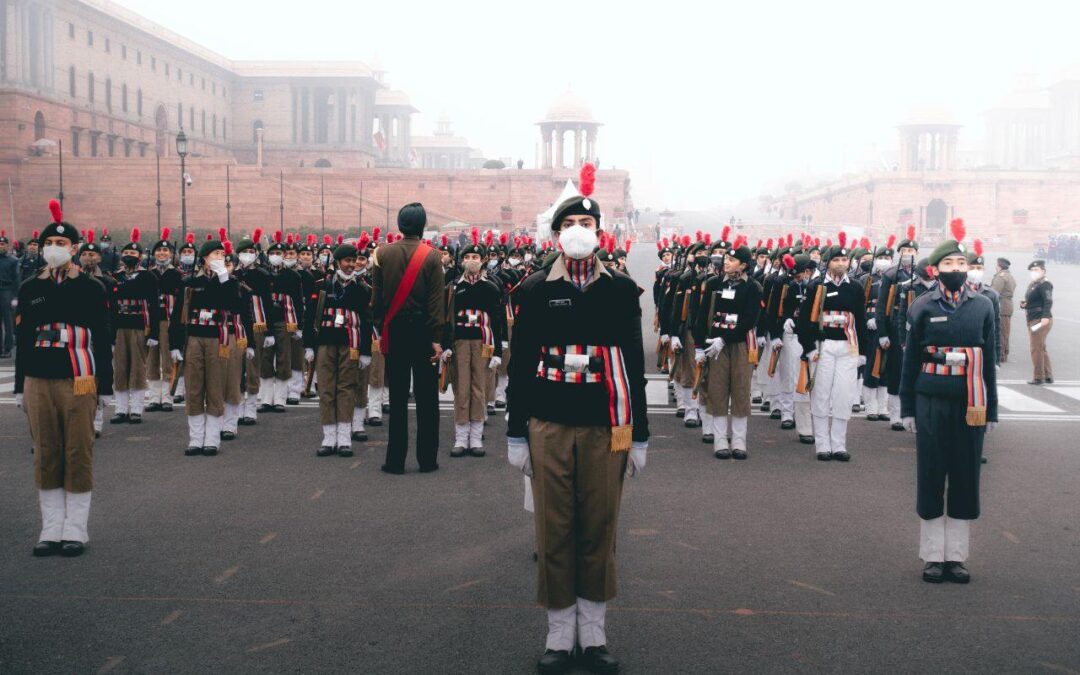Modern teams face pressure to move faster, with fewer resources and higher stakes.
Military cultures run on clarity, trust, and small rituals that carry big meaning. There’s quite a lot that businesses can borrow from the men and women in uniform.
This piece pulls five practical lessons you can use this quarter, without buzzwords. From team bonding to symbolic recognition, the focus stays on loyalty that lasts.
Curious how traditions translate to today’s companies, and why small tokens matter? Yes?
Then read along, pick one idea, and put it to work starting this week.
1. Clear Roles and Communication Cut Through Confusion
In the military, every officer knows exactly where they fit in and what needs to be done at any moment. This prevents mistakes, limits second-guessing, and reduces wasted time.
Companies benefit when employees understand their responsibilities as well as who to approach with problems or updates. Structured briefings give space for questions while eliminating ambiguity before projects start.
And, simple language avoids confusion when the stakes run high or deadlines close in fast. Managers set expectations early instead of scrambling later on. That kind of clarity cuts down friction so teams focus energy where it counts most: execution!
2. Unique Recognition Symbols Strengthen Identity and Motivation
Lesson number two is quite paramount. You see, employees want to be appreciated for the value they bring, not just for meeting numbers or checking boxes.
The military thrives on traditions that reinforce identity through visible rewards. In corporate settings, physical tokens build stronger bonds than digital badges or standard thank-you emails ever could.
Let’s take challenge coins, for instance, rooted in military tradition. In an expert piece on Facts About Challenge Coins, we see this unique symbol representing a team’s shared values, accomplishments, and membership in a distinguished group.
Modern businesses can borrow from this by offering other custom symbols such as:
- Lapel pins with company insignia
- Engraved medallions
- Custom desk plaques
- Commemorative notebooks
- Team-branded apparel
When recognition feels meaningful and lasting instead of generic or routine, teams remember it long after award season ends.
3. Shared Rituals Build Real Trust Among Teams
Nothing beats a team where each person finds the other reliable, trustworthy. The military relies on rituals like morning briefings and unit meals to keep people connected, not just when recognizing and rewarding excellence.
These habits become glue for teams, holding everyone steady under pressure. In workplaces, even small shared routines help break barriers:
- Weekly stand-up meetings
- Coffee check-ins with no agenda
- Project kick-off lunches
- Pausing for short gratitude rounds
- Welcoming new hires with a group gesture
Such rituals open channels for honest feedback and reduce silos that slow work down. When practiced regularly, these simple acts create space for trust to grow between colleagues at every level.
4. Mission-Driven Culture Inspires Commitment
Few things match the level of discipline and dedication of a serviceman to his assignment. Every task connects directly to the larger mission, giving real meaning to even routine work.
Businesses see better results when employees buy into the big picture beyond writing a perfect mission statement. That kind of culture shows up daily in leadership actions, honest conversations about goals, and how decisions are made.
And, it takes more than slogans or posters on walls. It needs managers who can tie everyday duties back to core values consistently. People feel they serve a purpose bigger than themselves this way, so commitment follows naturally from day one.
5. After-Action Reviews Turn Mistakes into Progress
Progress happens faster when teams treat mistakes as lessons, not just failures to hide or ignore. Military units hold after-action reviews where everyone, regardless of rank, shares what worked and what did not.
No one points fingers. Instead, every member has a voice in fixing gaps before the next mission starts.
Businesses can borrow this approach with:
- Team debriefs after big projects
- Open forums for feedback following setbacks
- Anonymous suggestion boxes for process improvements
- Encouraging staff to flag risks early
- Short recap meetings led by junior staff
These strategies build a culture where people want to learn together and fix problems quickly. Honest review sessions spark real change over time instead of repeating old missteps.
Conclusion:
Military-inspired practices quietly shape how modern teams succeed together. When organizations learn from these time-tested habits, genuine loyalty and clearer communication follow. In a world of constant change, small shifts toward tradition-driven leadership often mark the difference between surviving and truly thriving.






